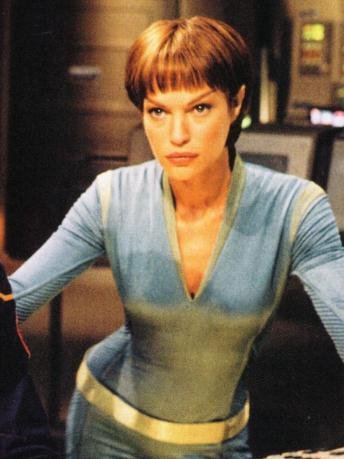“It’s pronounced ‘Frankenstein.'”
frahnk-un-shteen. I forgot to use this today and I’ve been kicking myself about it.
I’m thinking about the panel today. I thought it was if nothing else funny: my favorite quotes were regarding Will Smith being delicious and Doctor Mahanttan having “spent some time in Vietnam.” Pretty awesome.
I thought that maybe I should have offered some more explanation, though, on the character I played. For those who don’t know, Frankenstein’s monster is, in the book, very intelligent and reasonably well-read. He essentially teaches himself English. For the monster, the most desirable thing in the world is company. He is accepted once by an old patriarch for about thirty seconds, because the man is blind and cannot see the monster’s translucent flesh, bulging muscles, and jaundiced eyes. The monster even tries to talk to a small child, thinking the child will have no preconceived notions, and is there spurned too (he kills the child upon discovering that it is Dr. Frankenstein’s younger brother). Essentially, he’s lonely as hell.
There were a few things that interested me about gender in this character. First is his desire for companionship – specifically, that he wants a bride, a romantic partner (and a heterosexual relationship). That’s not PARTICULARLY strange, though, since if one is going to get one companion and one only, it may as well be a romantic one, and there’s no reason for the monster to prefer men over women. Besides, in the mid-nineteenth century, gay monster love probably wouldn’t have gotten published.
Anyway. Next, though, is the big one for me, which is that Frankenstein represents not merely a body brought back to life. He is a NEW person, and he is a new person who has circumvented that whole “gestation” thing that most new people tend to be pretty keen on for nine months or so. He is 100% recycled human, and he represents the notion that humans can exist without birth. That says odd things about sex, if not gender. What would we be if life could be perpetuated without making more humans through the conventional method? This is a question we’ve been dealing with as we’ve been asking about the future of humanity. If we’re to evolve past sex, will we then evolve past gender, too? This is a question I raise all the time and one of the reasons I picked Frankenstein’s monster is because it was a good example of it.
So I keep thinking about how Frankenstein’s monster is described, with his thin, thin skin just barely covering his organs and musculature, and for some reason it’s making me think of potstickers and now I want potstickers.
Trackbacks and Pingbacks
Comments are closed.

mmmmm potstickers.
I like the way you think of Frankenstein’s monster as a new person…or rather a form of reproducing without sex. I talked about this concept, the idea of sex becoming outdated through technology, in my web paper. I think it would be feasible to assume we could also evolve past gender through this method. But then again….F’s M was made to be a MAN and is read as a man. I think the big difference, or problem if you will, with a “natural” sans sex reproduction is that we would be making humans. It becomes ethical at some level. Is it right to produce non-sexed flesh and blood human-like beings? Wouldn’t many consider it cruel? Look at what happened to FM. That’s a big worry and it’s also why the parents of intersexed children have such a hard time trying to pick what’s right for their kid.
However, when you get into humanoid robots…that’s a whole different story.